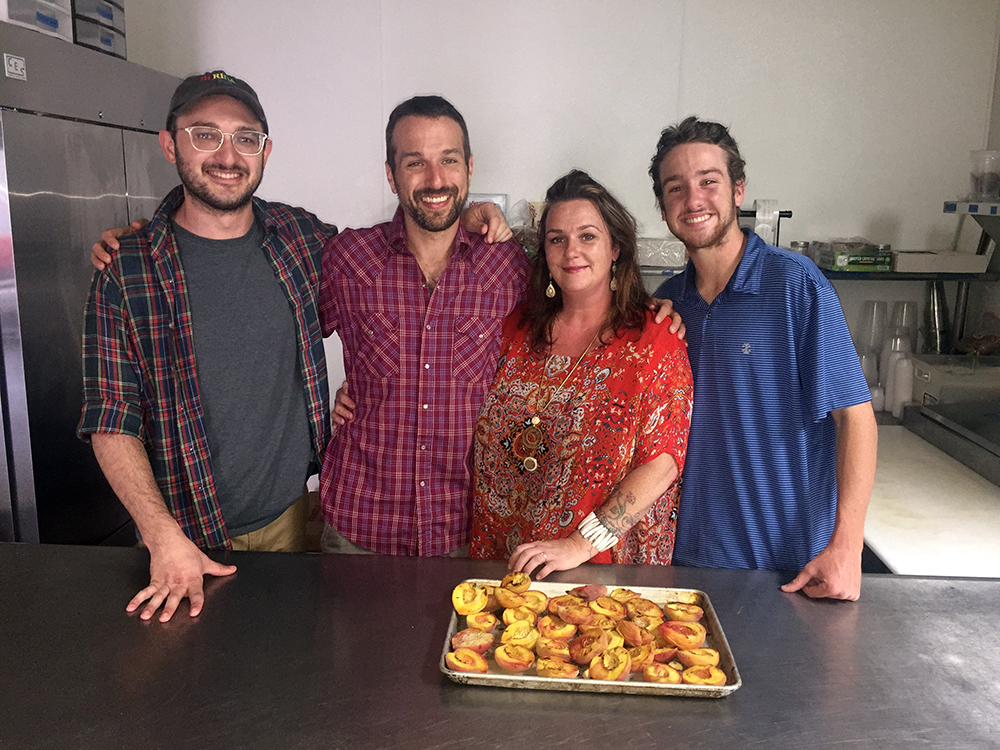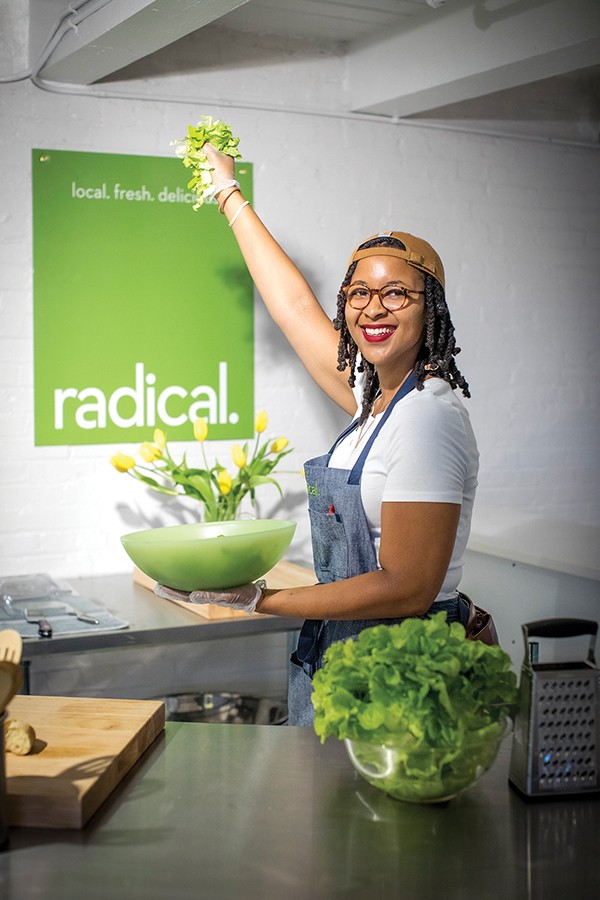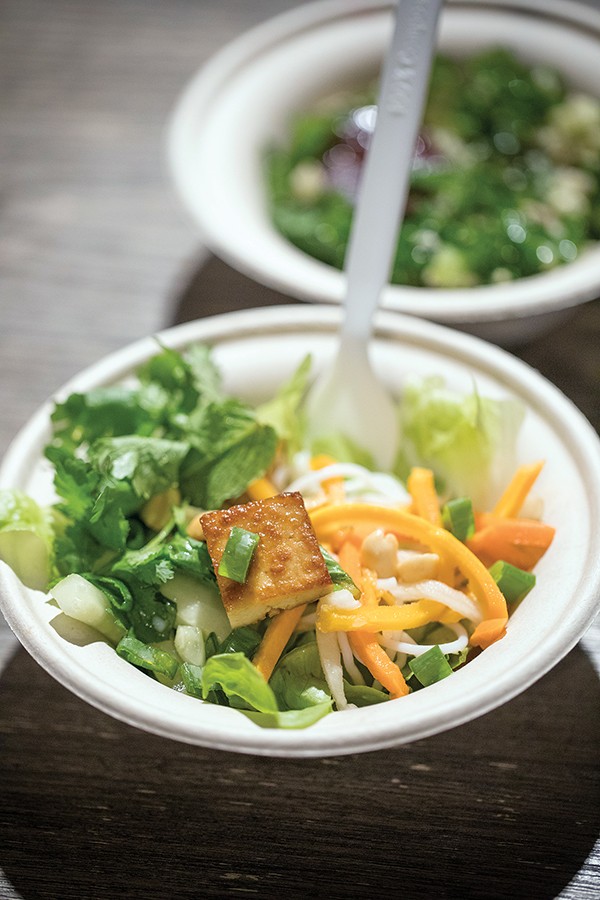If you want to take a trip around the world without leaving your dinner table, visit Savannah’s Food Co.
The current menu of the meal-delivery/catering company includes the Vietnamese-inspired North Memphis banh mi, Mumbai beans and rice, Welsh potato leek soup, Asian sesame noodles, Persian saffron and citron salmon, and Moroccan chicken.
“We represent 10 countries,” says chef/owner Zach Thomason. “We are the Olympics of food.”
He also serves fried chicken, which he describes as “your typical comfort fried chicken.” There’s also the Soul Food Catfish Special with roasted red bell pepper and goat cheese hush puppies.
“We try to develop a menu that brings in flavors from around the world,” Thomason says. “You begin to accept and gain an awareness of others through food by talking about the different flavors that each culture is bringing to a dish.”
Thomason, whose cooking experience includes jobs at Interim, Next Door Eatery, and The Gray Canary, describes Savannah’s Food Co. as “a gourmet meal-delivery and catering company using farm-fresh ingredients. I source either from the farmers markets or have some of the local farmers bring me their goods, and we go from there.”
People order 24 hours in advance for next-day delivery. “I do Memphis, Arlington, Collierville, Germantown, and Bartlett. All of the suburbs. We offer individual portions and family-size portions.” They also feature a kid’s menu.
As for desserts, Thomason says his fiancée, Gillian Lepisto, makes “some of the most astonishing desserts you can have. Delicious and homey. The point of food is to make you feel like someone cares about you.” They offer six desserts, including Lazy Lemon Cheesecake Bars. Prices for meals range from $12 to an $85 family-size.
Thomason, who is assisted by Lepisto, his brother Nick Myers, and Mason Whitman, is currently working out of Jimmy Gentry’s Paradox Catering. “Savannah” is Lepisto’s daughter Savannah Lepisto.
He would like to eventually open a brick-and-mortar business. “We definitely will have a deli counter. And the location will offer some lunch options with sandwiches and soups and to-go items. Take-and-bake things like we’re currently selling, but with more space. That opens up the possibility for countless things. We could begin hosting dinners and serving our meals hot, rather than have our customers heat them themselves.”
“There’s just more we can do with it,” he adds. “We’ll have the opportunity to talk about selling locally produced goods.”
Thomason’s main goal is to eventually be able to sell his locally sourced food to low-income families at a lower price. “I have a passion to get this food to people who need it and can use it.”
And, he says, “I truly believe when we eat closer to where we live, we are inevitably going to feel good.”
Thomason came up with the idea for his business during the pandemic. “I had been working with 275 Food Project and helping them deliver, at the time, emergency food CSA [Community Supported Agriculture] boxes. I started talking to one of the women who owns the place, Diane Terrell, and she was really helping me move my thoughts along with it.”
She told Thomason, “Think about something that you think would be impactful. Think about what you can do.”
Thomason believes he can teach people through his food. “It all starts with the fundamentals. Right now, the only thing I have to offer is food.”
“This is just dreaming,” he continues, “but in the future, I hope to have a 501c3 that helps feed and take care of people who cannot get this source of food. And also giving jobs to those who cannot get them. Whether they’re coming out of jail or rehab, homeless shelters. But none of that is possible until we can get the business up and rolling.”
To order from Savannah’s Food Co., go to savannahsfoodco.com.

 Photographs by Justin Fox Burks
Photographs by Justin Fox Burks 